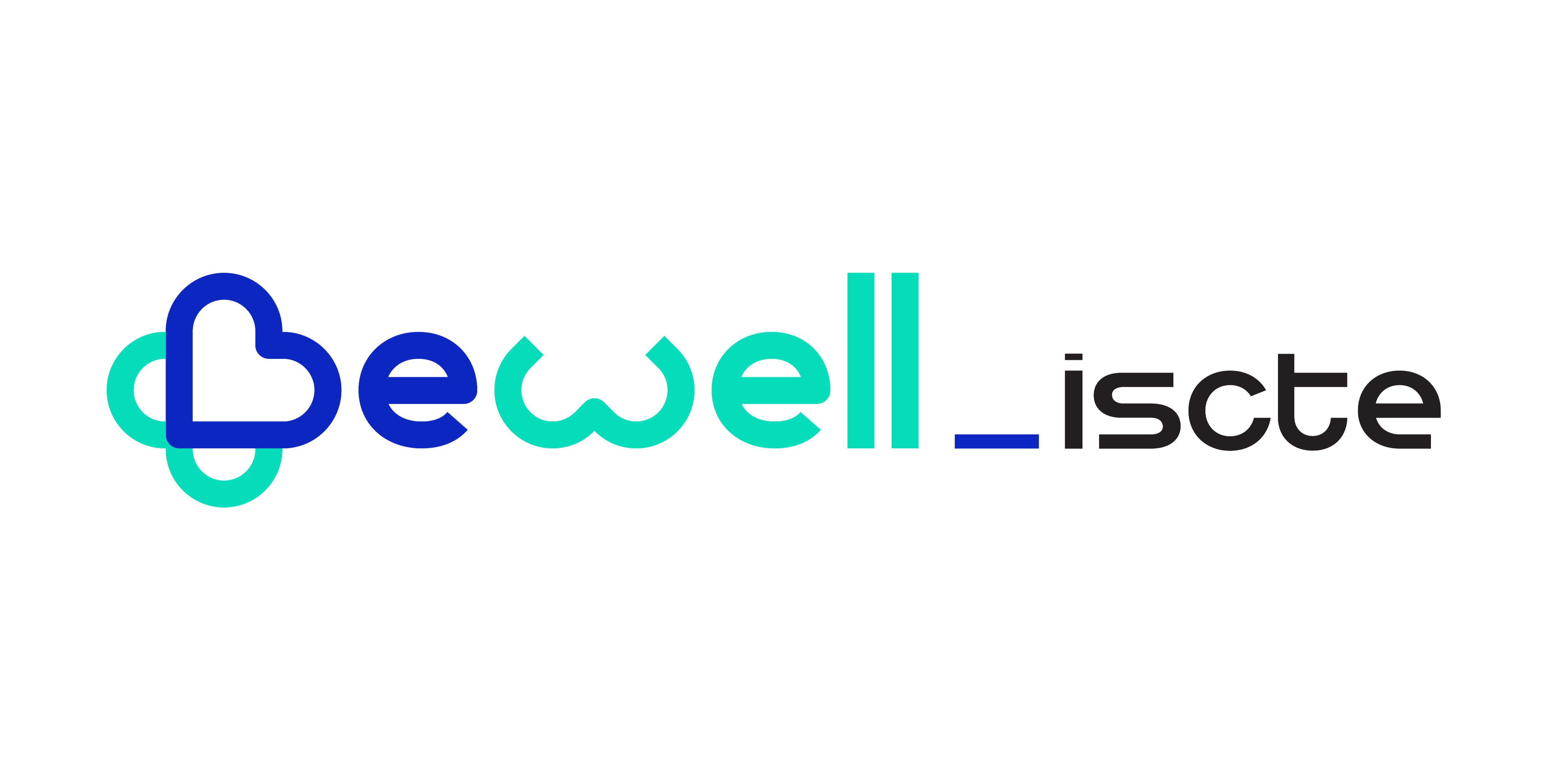Lista de Projetos
Esta é a lista de projetos disponíveis no sistema. Para saber mais detalhes sobre um projeto clique no seu nome ou imagem. Também pode procurar por um determinado projeto na caixa de pesquisa em baixo.
Página 4
O projeto NEST investiga como trabalhadores neurodivergentes funcionam como "sentinelas" em ambientes organizacionais, identificando sinais precoces de risco e disfunções estruturais, à luz da Critical Management Studies (CMS) e da Sensemaking Theory (Weick, 1995). O estudo baseia-se numa abordagem qualitativa com entrevistas semiestruturadas a managers e colaboradores, recolhendo dados sociodemográficos e organizacionais. Prevê-se a submissão de um artigo científico internacional, o desenvolvimento de um toolkit de inclusão e a preparação de candidaturas nacionais e internacionais.
Este projeto tem como objetivo geral a promoção da saúde mental e bem-estardos/as estudantes do Iscte-Instituto Universitário de Lisboa, com base no modelo Stepped Care, desenvolvido no programa para a promoção da saúde mental no ensino superior - Programa ACCES. Focando-se numa abordagem de promoção e prevenção, e adotando uma lógica de participação coletiva, identificam-se os seguintes objetivos específicos: 1. Desenvolvimento de atividades de promoção da saúde mental, prevenção e ajustamento (nível 1 e 2), com vista à melhoria das competências relacionadas com a literacia em saúde mental, resiliência mental e gestão de stress; 2. Reforço das respostas psicoterapêuticas e psiquiátricas para estudantes com perturbações mentais comuns de gravidade ligeira a moderada (nível 3), com vista à intervenção precoce e evitamento de patologias mais graves; 3. Fortalecimento dos mecanismos de identificação de situações de risco ou doença mental grave e o seu encaminhamento para os serviços de saúde especializados (nível 4 e 5); 4. Promoção da participação ativa da associação de estudantes no desenvolvimento, implementação e avaliação das atividades;5. Inclusão de estudantes com necessidades educativas específicas e outros grupos vulneráveis (estudantes de 1º ano, estudantes deslocados, nacionais e internacionais, estudantes beneficiários da ação social escolar, estudantes bolseiros provenientes de países PALOP, estudantes mulheres, e estudantes LGBTQIA+), de forma transversal às atividades desenvolvidas.
Informação do Projeto
2024-05-02
2026-09-30
Parceiros do Projeto
O projeto WISE-AI visa abordar a baixa participação das mulheres nas ciências da IA e apoiar a implementação dos Objetivos de Desenvolvimento Sustentável (ODS). Apesar da crescente importância da IA em vários campos, as mulheres continuam sub-representadas neste setor. Combinando formação e jogos educativos, o projeto pretende capacitar jovens mulheres em competências de empreendedorismo e IA colmatando a lacuna de género e promovendo a inclusão e a igualdade. O projeto aproveitará métodos educacionais inovadores, utilizando uma abordagem baseada em jogos para tornar a aprendizagem envolvente e eficaz. Para além disso, o projeto pretende criar um impacto significativo ao longo do tempo, proporcionando recursos educacionais que continuarão a apoiar as jovens mulheres mesmo após a conclusão do projeto.
Informação do Projeto
2024-04-01
2026-03-31
Parceiros do Projeto
- BRU-Iscte (OB&HR)
- MTG - Líder (Chipre)
- AY Institute - (Lituânia)
- Politeknika Txorierri - (Espanha)
- ICON - (Grécia)
- ATERMON - (Países Baixos (Holanda))
Ciência para os Desafios Globais é o lema para envolver o público em geral, especialmente os jovens estudantes, com atividades de investigação e conhecimento científico que possam responder aos grandes desafios mundiais e europeus relacionados com a sustentabilidade ambiental, económica e social. Esta proposta pretende responder diretamente aos objetivos de Investigação e Inovação Responsável (RRI) do programa-quadro da UE, sensibilizando o público, também entre as comunidades escolares, para a relevância da ciência para assegurar a preservação de recursos, a economia verde, a descarbonização, a equidade social e a inclusão, ao mesmo tempo que faz a ponte entre os cientistas e a sociedade, dando aos investigadores a oportunidade de perceber as principais preocupações dos cidadãos e como estes entendem o seu trabalho. As escolas e os seus alunos serão envolvidos em atividades durante todo o projeto, de forma a garantir o impacto escolar, incluindo os mais novos. Ao aumentar a sensibilização do público e dos estudantes, o «SCIGLO» contribuirá simultaneamente para dois objetivos principais: (i) melhorar a compreensão da importância do desenvolvimento das carreiras científicas e dos investimentos na ciência; ii) aumentar a compreensão dos investigadores sobre o papel da sociedade no seu conjunto para o desenvolvimento de políticas científicas sustentáveis.
Informação do Projeto
2024-04-01
2026-01-01
Parceiros do Projeto
- Iscte-CI - Líder
- SocialDigital Lab - Coordenador Técnico
- BRU-Iscte
- CEI-Iscte
- CIES-Iscte - Coordenador Técnico
- IT-Iscte
- CRIA-Iscte
- DINAMIA'CET-Iscte
- ISTAR-Iscte
- MNHNC - Líder (Portugal)
- UMinho - (Portugal)
- NOVA ID - (Portugal)
- UEvora - (Portugal)
- CML - (Portugal)
- ESHTE - (Portugal)
- INL - (Portugal)
- UC - (Portugal)
INITIATE is a project that aims to empower higher education institutions to develop R&I through institution transformation. INITIATE, in its widening dimension, seeks to raise excellence in science and knowledge valorisation of Europe's universities through cooperation and knowledge circulation. Through stakeholder inclusion and co-design approach, INITIATE will design an approach for institution transformation that will reflect on the current needs and resources of the institution, external elements such as policy barriers, good practices from other initiatives and identification of possible collaboration areas with other institutions including local ecosystems. Through iterative process and R&I Labs supported by online tools such as Knowledge Hub, INITIATE will generate policy recommendations for helping stimulate R&I development and scientific excellence in Widening countries, in addition to research outputs and creation of joint applications for other funding sources (e.g. Horizon Europe). The approach will be demonstrated in Croatia, Portugal and north Macedonia. This will finally result in a roadmap for long term uptake of R&I in widening countries with identified replication cases and forming of the Alliance for green energy transition that will assure the long-term sustainability of INITIATE results. The action focuses on universities in Widening countries, in which the cases for the implementation of INITIATE approach will be conducted. Additionally, the project aims to achieve several outcomes, including the successful institutional reform and upgrade of higher education institutions in the R&I dimension, empowerment to be actors of change, and the mainstreaming of a culture of excellence in science and value creation amongst higher education institutions, particularly in less research-intensive institutions and countries. To achieve these outcomes, the project will engage universities as well as local ecosystems.
Informação do Projeto
2024-02-01
2027-07-31
Parceiros do Projeto
Página 4

 English
English




